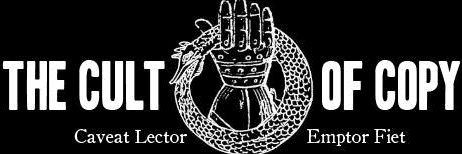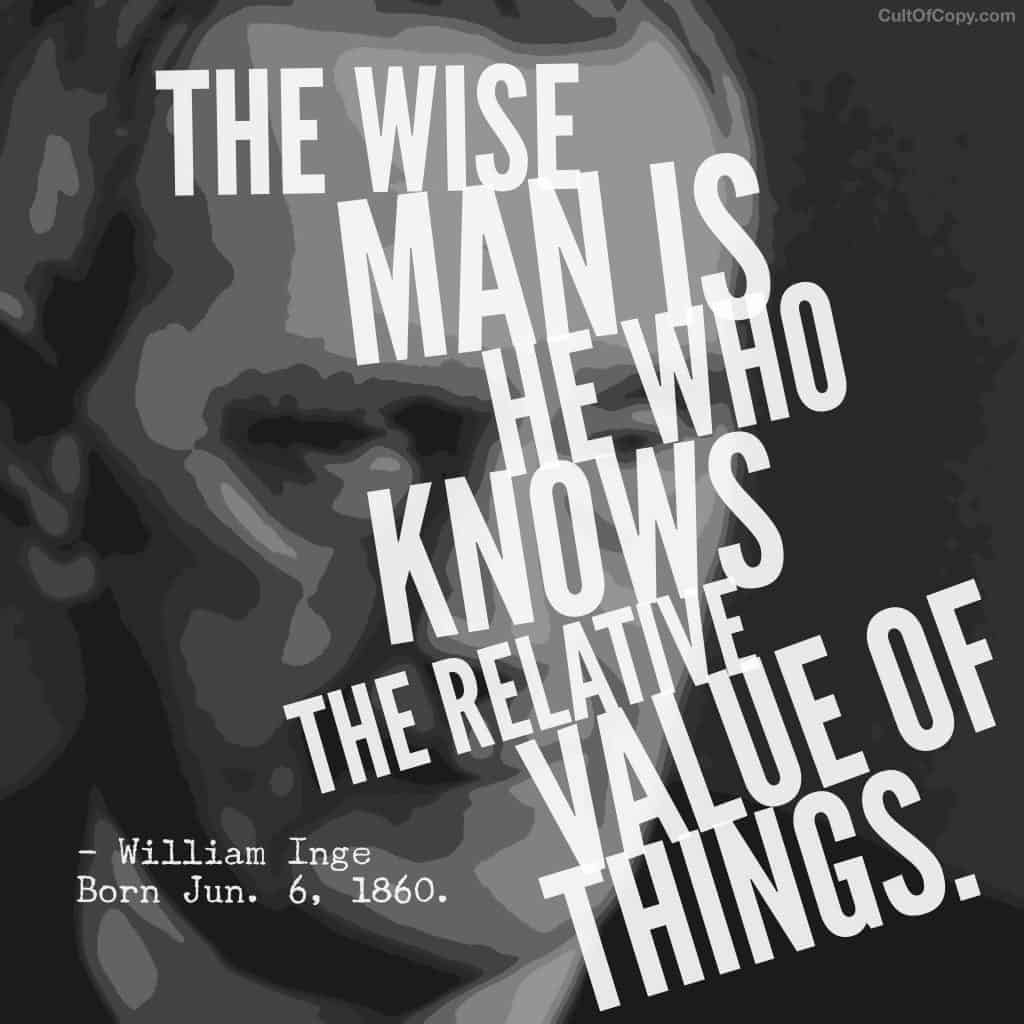“The wise man is he who knows the relative value of things.” – William Inge, Born Jun. 6, 1860.
I'd be willing to say ALL value is perception based, and is therefore relative. And perception of value is based on RELATIVE comparisons rather than any objective absolutes.
For example, something that costs $50 might seem expensive if you only meant to spend $20. But if the $50 is the short-term cost of $150 item, then all of a sudden it's a great bargain.
So like the quote says, a wise man understands these relative relationships between things. Right?
Ha! No. Sorry.
Here is how you can use this against people…
Basically, make them feel wise. By SUPPLYING THEM with the relative comparisons that will present your offer in the best light.
How does your solution's cost compare to:
The cost of competing solutions?
The cost of doing it manually yourself?
The cost of developing your own solution?
The cost of hiring the work out?
The cost of doing nothing?
The “normal” cost of the solution outside this singular special offer?
And here, “cost” is not just monetary price, but investment in time and effort as well.
All of those comparisons can create a RELATIVE perception of value that can help you make your product seem to have VALUE which EXCEEDS the COST.
It is INCREDIBLY hard for someone to pass up an obnoxiously good bargain on something they want with even the thinnest shred of desire or interest.
And when you supply your prospect with all of these comparisons, their desire to buy begins to feel like the WISE choice. They will find themselves repeating your justifications VERBATIM when they recount the story of their heroic purchase later to their friends and family.
“It just made sense to get it now.”
“I would have spent more the longer I waited.”
“I would have been a fool to pass up this deal.”
So wise. So wise.

